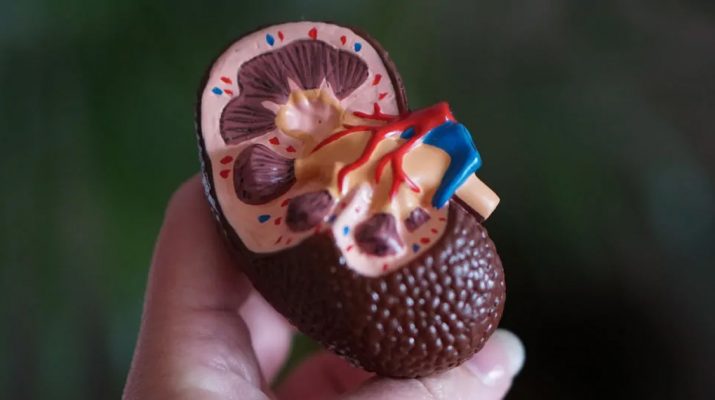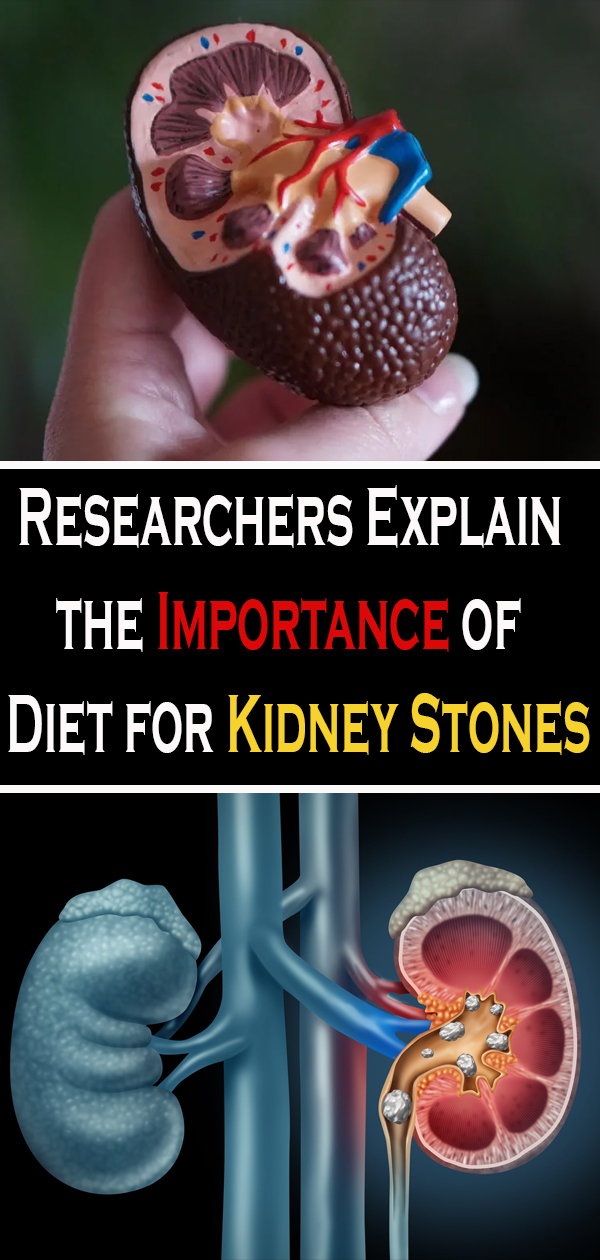Kidney stones are small, hard mineral and salt deposits that form inside of your kidneys. Once they have formed, they can travel from your kidneys into your bladder, and sometimes, they get stuck along the way.
Often times, they pass on their own with nothing more than some major discomfort and pain (as long as you follow your doctor’s recommendations), while other times more serious action is required to remove the stones.
Having a kidney stone isn’t entirely uncommon, although it isn’t extremely common, either, as there are more than 3 million diagnosed cases in the United States each year. A diagnosis requires that a medical professional order a lab or imaging test and, if necessary, treatment will follow. The number of diagnoses isn’t a proper representation of the actual number of people who suffer from stones, as many cases go undiagnosed.
A kidney stone can last for as little as one week, or it could last for months. It all depends on the severity of the stone, the size, and the treatment path being followed. Kidney stones can form for many reasons, but some of the most common reasons include:
- dehydration
- unhealthy eating habits
- a change in your diet
- hormonal changes
- kidney infections
- genetics
- being overweight or obese
- having a disease of the digestive system
- medical conditions such as hyperparathyroidism, sarcoidosis, a urinary tract infection, yeast infection, or cancer
While some small stones can pass on their own with little problem, a stone of any size is extremely painful. As mentioned before, a kidney stone travels from your kidney. Once the stone reaches the ureter (which is the tube that connects your bladder to your kidney), you will notice the extreme pain begin and continue until the stone has passed.
Symptoms Of Kidney Stones
If you haven’t been professionally diagnosed by a doctor but believe you are suffering from a kidney stone, you may experience the following symptoms:
- Intermittent renal pain
- Blood or pus in your urine
- Fever or chills (only in serious cases)
- Pain that worsens when moving
- Pain (in males) that radiates to the groin and testis
- Back pain that moves around to your sides, just below your ribcage
- Lessened urine flow
- Trouble urinating although you have an urgent and frequent feeling that you need to do so
- Feeling like you constantly have to urinate
- Pain and/or burning while urinating
- Urine that is pink, red, or brown
- Nausea and vomiting (again, only in serious cases)
- Cloudy urine
- Urine that smells different
It is important to note that if you do think you have a kidney stone, you should see your doctor for a professional diagnosis, a treatment plan, and information about how large the stone is.
What Complications Could Occur From Getting Frequent Kidney Stones?
Usually, the only complication that can occur as a result of a kidney stone is intermittent pain but, normally, no long-term effects occur. You may find yourself needing over the counter medication for pain and lots of water to help you feel better and pass the kidney stone.
Even when the kidney stone is more serious and medical treatment is necessary, there will likely be no long-term effects from the problem. Surgery may be required for these more serious cases but, after surgery, you should be good to go.
Research Proves The Importance Of Diet For Kidney Stones
What you eat and drink greatly affects kidney stone development, and according to researchers at Harvard University, this is due to high amounts of protein, sodium, sugar, and calcium causing your kidneys to work too hard trying to filter all of it out. When your kidneys can’t keep up, a kidney stone may develop and eventually grow larger in size as time goes on.
The same group of researchers proved just how important your dietary choices are when it comes to forming stones. They point out how different types of foods can cause different kinds of stones, which means that the food choices that work for one person may not work for another.
The Single Most Important Dietary Change To Prevent And Treat A Kidney Stone
No matter the type of stones you suffer from, however, water is the most important dietary change you can make. This is because water helps your kidneys filter out all the build-up and allows you to pass more urine, which helps pass a kidney stone and helps prevent future stones from forming. You will know you are drinking enough water if your urine comes out light and clear.
You should be drinking at least six 8-ounce glasses of water each day in order to keep your kidneys healthy and functioning properly. This one simple dietary change can make the difference between having a kidney stone and feeling great.
Researches at the National Institute of Diabetes and Digestive and Kidney Diseases (the NIH) have proven that water works wonders, but they also encourage dietary changes when it comes to the foods you eat, too.
Best Foods To Eat For This Condition
Now that you know how important the foods and drinks you consume are when it comes to forming or getting rid of a kidney stone, you may be wondering about the best foods to eat. Some of the healthiest foods to eat for kidney stones patients include:
- water
- protein sources that do not include animal product
- a salt substitute
- lemonade
- kale
- organic strawberries
- blueberries
- apples, in moderation
- blackberries
- Brussels sprouts
- artichoke
- cauliflower
- lemon juice (which is easy to add to food while cooking)
- apple cider vinegar
- cucumbers
- mint
- honey
- lime
Foods To Avoid
Of course, there have to be some foods to avoid, as well. Unfortunately, this list may contain some of your favorite foods:
- beets
- rhubarb
- okra
- sweet potatoes
- tea
- nuts
- chocolate
- anything containing soy products
- spinach
- Swiss chard
- any food high in sodium
- cheese
- milk
- alcohol
- soda (also known as pop)
- salmon
- animal protein (steak, chicken, eggs, seafood, etc.)
- oats
- oat bran
- red kidney, navy, and fava beans
- tomato
Tips For Patients Based On Research
While your dietary choices are extremely important when it comes to the formation (or, hopefully, lack thereof) of stones, there are some other factors to consider, as well. If you suffer from a kidney stone or find yourself with a kidney stone repeatedly, this tip may help you.
It is important to remember that what works for one person may not work for another since there are different types of stones. While there are general guidelines to follow, you have to remember that everyone is different, and everyone’s bodies are made up differently. In order to know for sure which foods may cause a kidney stone to develop, you could keep a food journal.
With a food journal, you would write down what you eat for each meal (including snacks) every single day. Then, if you get another kidney stone, look back to see which foods you had been eating regularly just before the stone developed. To help narrow it down, pay attention to which foods you were eating during a stretch when you didn’t get a kidney stone, and compare to the foods that you had begun incorporating later on.
Final Thoughts On The Importance Of Diet For Kidney Stones Patients
If you are or have ever suffered from a kidney stone, you know how uncomfortable and painful it can be. Suffering from them on a regular basis is downright miserable and is something no one wants to have to deal with. The pain and discomfort could affect your life by making it difficult to work or move around at home, so seeking medical attention is definitely worth it.
The best way to avoid this being a problem is to consider what you eat. What you eat and drink plays a huge role in the formation of kidney stones, so it is extremely important to pay attention to it. Research proves that by simply changing your diet, you could find relief from kidney stones.
If you find yourself getting stones frequently, making this lifestyle change could help you. It will help clear out any stones you currently have, and then it will help prevent more stones from forming in the future.


